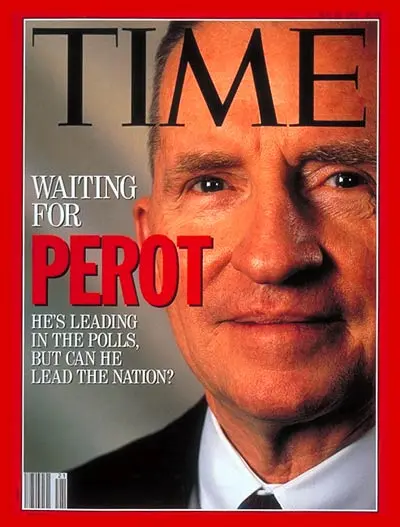United We Stand America
The Power To UNITE
This Domain Is For Sale
Contact us by Phone or Text at:
(866) 76-UNITE or (866) 768-6483
That sucking sound back in 1992? The votes “United We Stand America” spirited away from the mainstream parties
How billionaire Ross Perot used "United We Stand America" to bring populism back to Presidential Politics and changed the outcome of the election.
Learn How →
History is repeating itself, control the narrative.
Undecided Voters
With enough traction, a third party candidate will change the '24 presidential election. As of today this is RFK Jr.
Talk Directly to the People
Use the power and history behind "United We Stand America" to convey trust within you messaging.
Change History
The rest is up to you. Make us an offer for "UnitedWeStandAmerica.com" today and shape the future tomorrow.
About Us
H. Ross Perot didn’t win the 1992 presidential election. He didn’t even capture a single Electoral College vote.
Nonetheless, the Texan billionaire’s outsider bid for the American presidency transformed the political and electoral landscape, in both the short and longer term. By capturing 19 percent of all votes cast that November—the highest percentage for a third-party or independent candidate since Theodore Roosevelt campaigned for a third term in the White House in 1912—Perot delivered a wake-up call to politicians on both sides of the aisle.
Perot followed the populist model set down by William Jennings Bryan in his (unsuccessful) campaigns for the presidency in 1896, 1900 and 1908. Like Bryan, Perot reached out to working-class and middle-class Americans who felt ignored by the political establishments within both parties. Bryan argued for what he felt was in the interests of the “common man,” advocating the creation of a silver standard and vilifying monopolies and the overreach of American imperialism.
Nearly a century later, Perot changed the dynamics of the race by focusing on similarly populist issues voters felt had been overlooked or discounted by both incumbent President George H.W. Bush and the Democratic Party candidate, Arkansas Governor William J. Clinton. “All he wanted was change,” argued Jim Squires, his former campaign spokesman, in a 2007 analysis.
Reach more People Collectively
There is no denying that the marketing power behind UnitedWeStandAmerica.com carries some serious street cred.
Make UnitedWeStandAmerica.com yours today
Perot's Campaign Put the Deficit Front and Center
National Debt
Perot jammed a balanced federal budget down Washington’s throat, still sounds good today.
Contract With America
Adopted by the GOP, the “Contract with America,” endorsed by all but a handful of Republican candidates in the 1994 midterm elections, and the Tea Party movement, born in 2008, both reflect Perot’s strategy in both style and substance.
Trade Agreements
Regarding NAFTA he insisted that the result of the trade pact would be “a giant sucking sound of jobs being pulled out of this country”. Sound familiar?
100% Success Rate
Nearly a century later, Perot changed the dynamics of the race by focusing on similarly populist issues voters felt had been overlooked or discounted by both parties .
"Running as an Independent in the 1992 presidential election, he lost to Bill Clinton, but captured 19% of the vote. He was famous for uniting “both socially conservative, blue-collar, anti-NAFTA voters with fiscally conservative but socially moderate voters,” who wanted a change from the status quo, didn’t trust established political parties and who wanted to reduce the outsize power that lobbyists and special interest groups exert over policy decisions. And significantly, Perot was one of the first candidates in the modern era to attempt to bring his political message directly to the American public using the growing media landscape.."